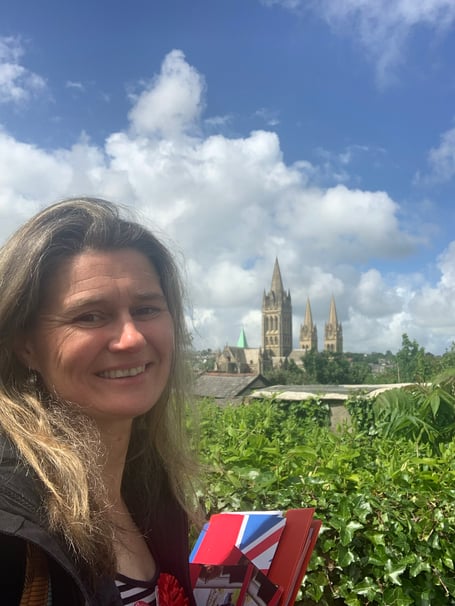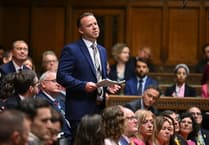I TALKED about Falmouth as a port in my maiden speech. It’s such a big part of our history. We were appointed as the Royal Mail packet station, receiving and sending mail and messages all around the globe in the 1600s. That made us, for 150 years at least, the information superhighway of the British Empire.
The port still has a very busy harbour and docks, which have businesses servicing both military and commercial ships, as well as hosting cruise and leisure vessels. From the Royal Fleet Auxillary ships to superyachts.
Falmouth Harbour has also successfully hosted big events such as Falmouth Tall Ships, the Falmouth Classics Regatta and National Armed Forces Day. For a busy harbour, there is also an environmental element with initiatives on protecting seagrass, reducing plastics and providing habitats for sealife.
However, there is potential for so much more. I went to a conference on Tuesday at the Eden Project on how the port of Falmouth is poised to take advantage of a new generation of offshore wind production in the Celtic Sea. It spoke to the potential for our ports, our colleges, our young people and our businesses. The opportunities poised by this industry for the port of Falmouth, and across Cornwall, could be huge if we work to lock in investment locally.
With the support of this government’s new public energy company, GB Energy (which will invest in the infrastructure required to allow technologies like floating off shore wind to get off the ground), its £1.8-billion Ports Fund, and investment in the skills training we need, our young people will be able to grasp with both hands those well-paid jobs of the future while securing our own homegrown energy and facing down the challenge of climate change.
There is also a bid to provide electric charging facilities for vessels and cruise ships at Falmouth Harbour and docks. However, this is currently delayed by the difficulty of getting a national grid upgrade in Cornwall. The queue to do so will take years which is frustrating. The grid is part of the infrastructure that needs updating and is so important for Cornwall’s future. We will be producing as well as using electricity in Cornwall and will need to be able to transfer it out of the duchy, as well as bring it in.
We were the first large rural local authority to declare a Climate Emergency and a 2030 net zero target and now we have a chance to play our part in getting the country to a similarly ambitious target. It is very important that we do this in a way that is sustainable and protects the ocean that we rely on so much and our traditional industries like fishing, but we can and should play our part in getting to a net zero electricity grid and it can bring jobs and opportunity to Cornwall.
Falmouth’s time truly has come again as part of this government’s mission to become a clean energy superpower.
Jayne Kirkham
Labour MP for Truro and Falmouth


.jpg?width=209&height=140&crop=209:145,smart&quality=75)


Comments
This article has no comments yet. Be the first to leave a comment.